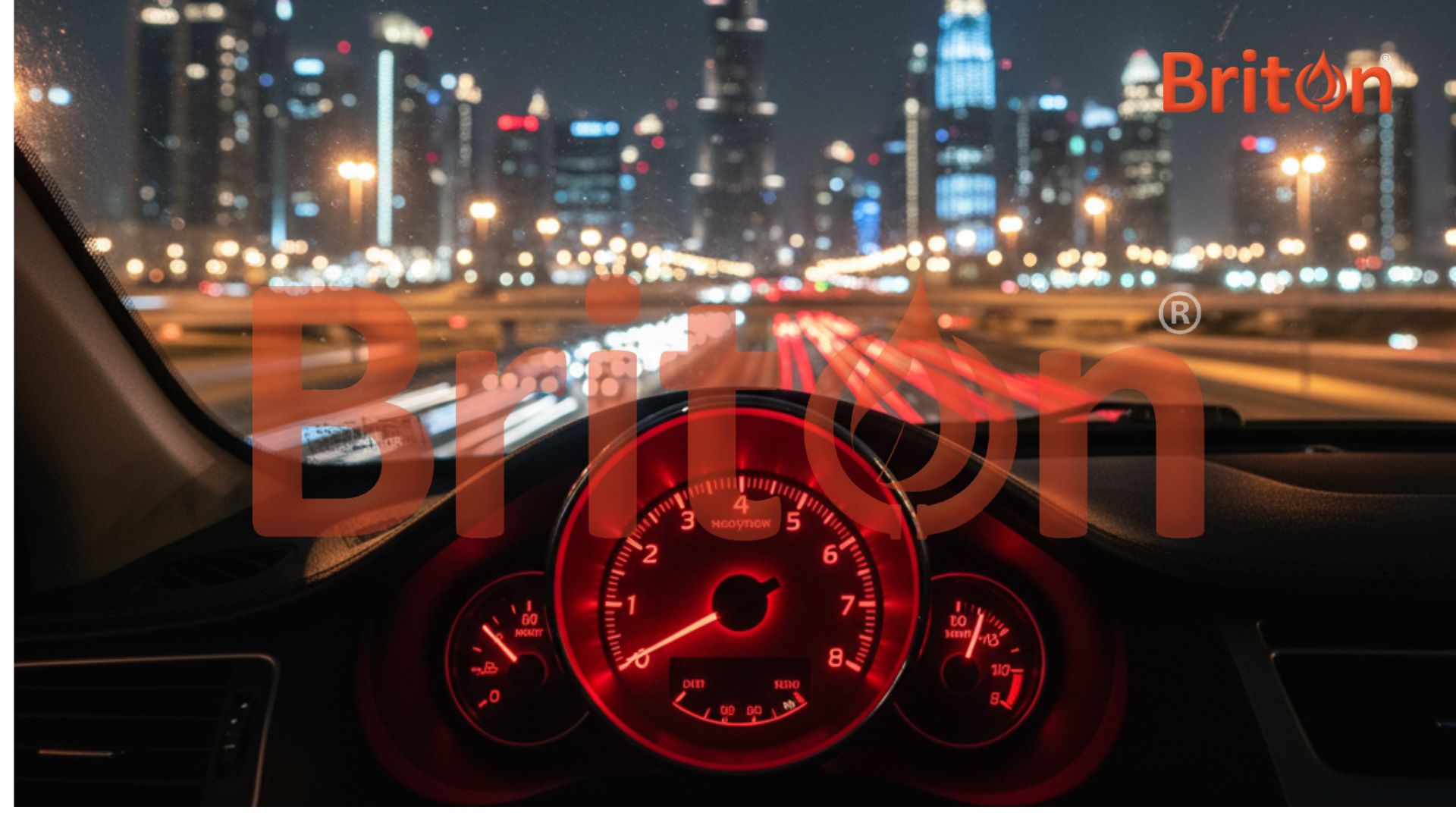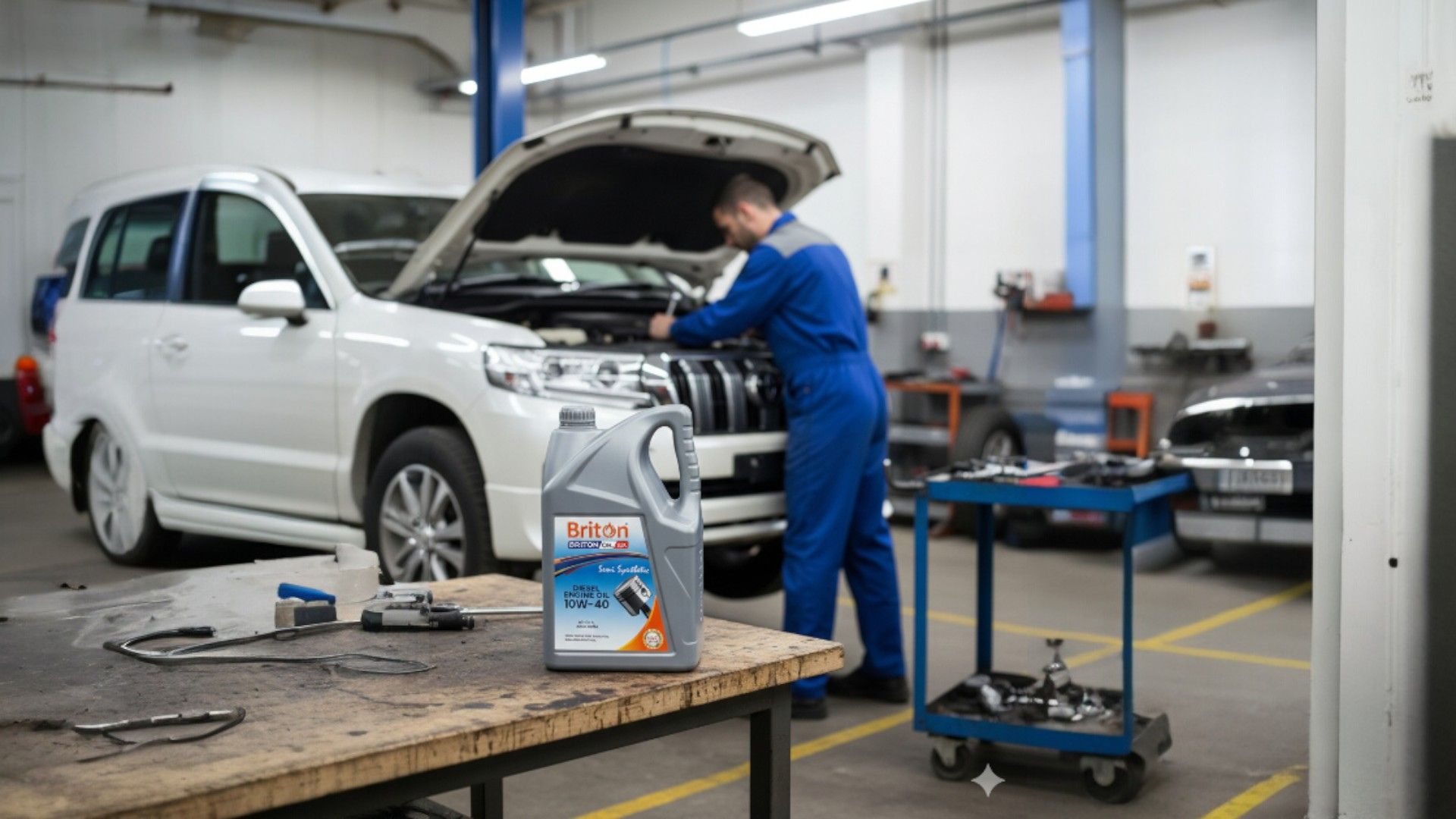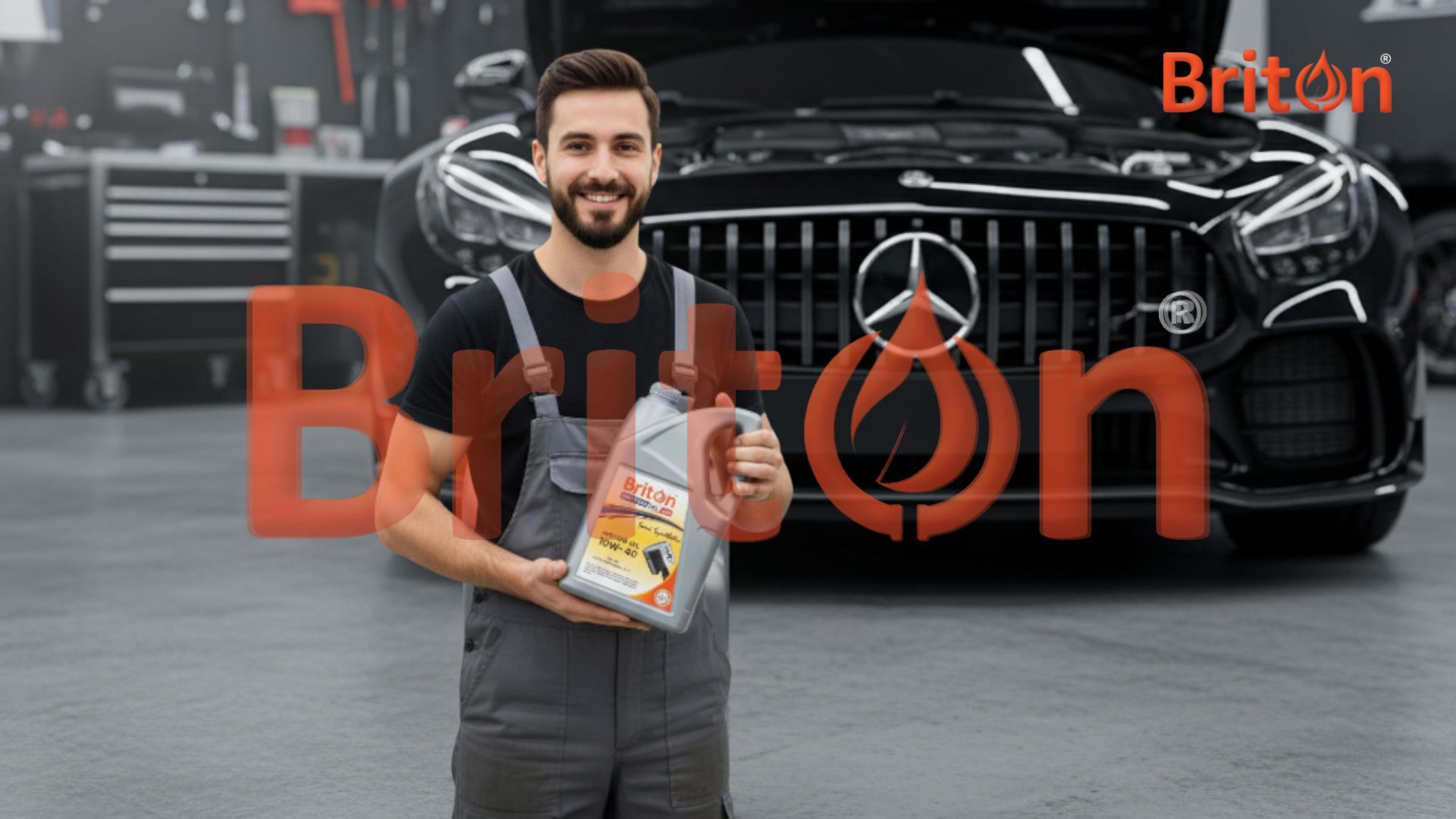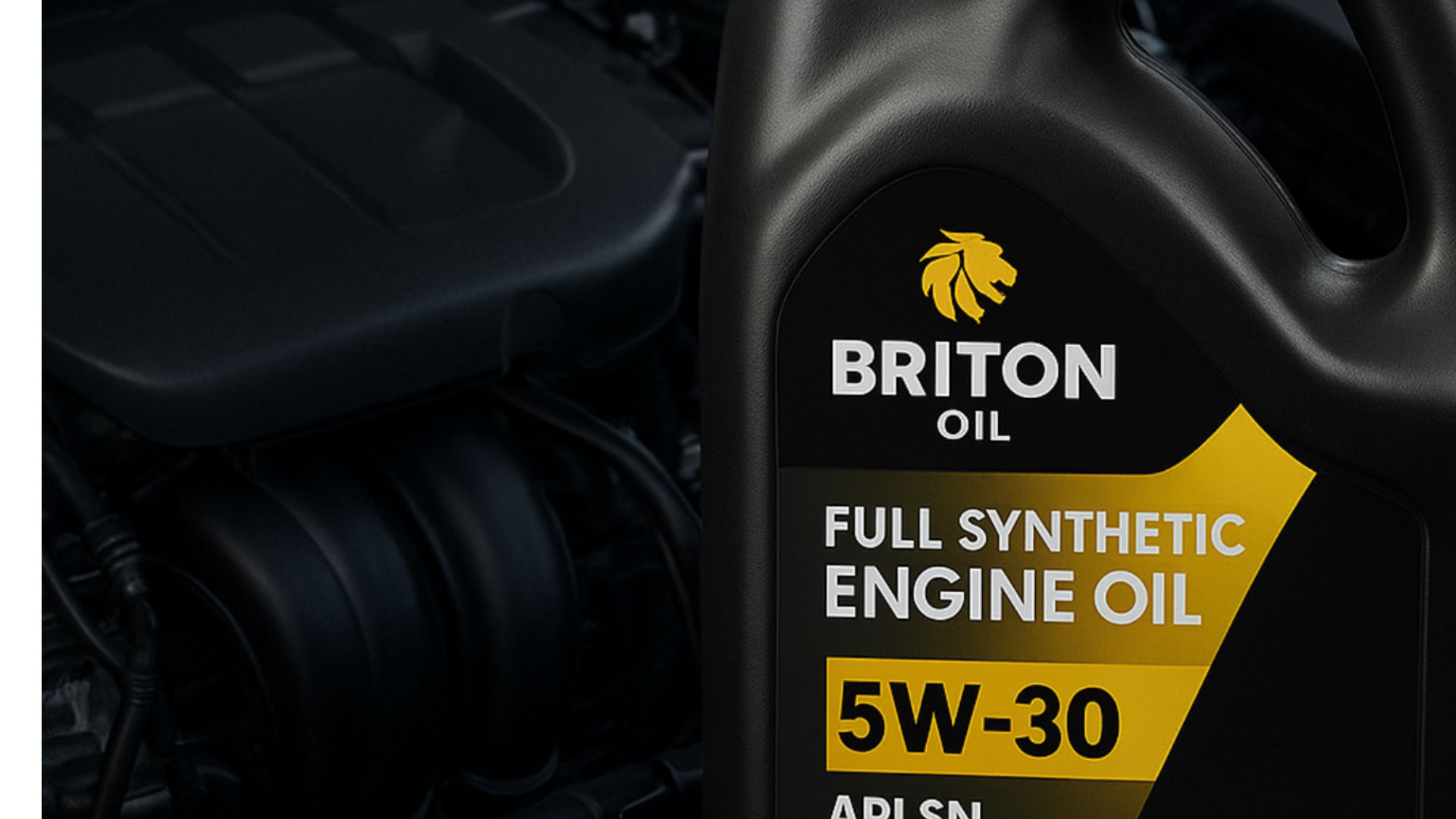Car Overheating in Dubai? 5 Ways Your Engine Oil is Failing You
The sight of a car’s temperature gauge creeping into the red is a driver’s nightmare, especially on a 45°C afternoon on Sheikh Zayed Road. While most people immediately blame the radiator or coolant, a far more common—and dangerous—culprit is often overlooked: your engine oil.
Your car’s coolant system is only designed to remove some of the engine’s heat. A significant portion of that heat—up to 40%—is managed by the engine oil, which circulates, lubricates, and carries heat away from critical components like the pistons, bearings, and valvetrain.
In the extreme conditions of Dubai, your engine oil is under immense stress. When it fails, it’s not just a minor leak; it’s a direct cause of overheating and catastrophic engine damage.
Here are the 5 primary ways your engine oil is failing and causing your car to overheat.
1. The Oil Level is Too Low
When your oil level is low, there isn’t enough fluid volume to properly absorb and transfer the heat generated by the engine. The small amount of oil left is forced to circulate more rapidly, spending less time in the oil pan to cool down. This superheats the remaining oil, making it completely ineffective at cooling.
Simultaneously, the low level means critical parts aren’t getting the lubrication they need. This leads to a massive increase in friction, which in turn generates even more heat. It’s a vicious cycle that quickly overwhelms your cooling system.
Why it’s worse in Dubai:
- Heat: High ambient temperatures can accelerate the “burn-off” of oil, especially in older engines, causing the level to drop faster than in a moderate climate.
- Evaporation: Intense heat can cause the lighter, volatile components of lower-quality oil to evaporate, reducing volume.
2. The Oil is Old, Degraded, and “Used Up”
Fresh engine oil is packed with advanced additives, including viscosity modifiers, detergents, and anti-wear agents. Over time and under high heat, these additives get depleted. The oil “shears” and breaks down, losing its ability to maintain a stable film.
Most importantly, old oil becomes saturated with contaminants (soot, fuel, metallic particles) and loses its thermal stability. It can no longer effectively absorb and carry heat away. Instead, it becomes a poor-performing fluid that allows heat to build up in the engine’s hotspots.
Why it’s worse in Dubai:
- Thermal Breakdown: The constant high operating temperatures in the UAE “cook” the oil, dramatically accelerating this degradation. A 10°C increase in oil temperature can cut the oil’s effective lifespan in half.
3. You’re Using the Wrong Viscosity
Viscosity is the oil’s resistance to flow. It’s the single most important property for engine protection, especially in Dubai.
- If the oil is too thin (e.g., a 0W-20 in an engine not designed for it): The extreme heat will cause it to “thin out” even further. The oil film becomes so weak that it breaks apart, allowing metal-on-metal contact. This friction generates massive amounts of heat.
- If the oil is too thick: It won’t flow quickly enough when the engine is hot, especially to the tight tolerances in modern engines. This starves parts of lubrication, increases friction, and also causes the oil pump to work harder, generating more heat.
Why it’s worse in Dubai:
- The Climate Demands Stability: You need a high-quality oil (like a full synthetic) that can maintain its specified viscosity even when the engine and outside temperatures are extreme. Cheaper, conventional oils will thin out dangerously, leaving your engine unprotected.
4. Sludge is Choking Your Engine
The Data:result of missed oil changes and stop-and-go driving.
This sludge does two things to cause overheating:
- It Clogs Passages: It blocks critical oil channels and the oil pump pickup tube, starving the engine of lubrication. The result is runaway friction and heat.
- It Insulates: It coats the inside of the engine, acting like a layer of insulating “blanket” that traps heat in. This prevents the oil and the coolant from doing their job, forcing the engine temperature to skyrocket.
Why it’s worse in Dubai:
- Stop-and-Go Traffic: The traffic in Dubai and Sharjah is the perfect breeding ground for sludge. Short trips and long idles mean the engine oil never gets hot enough to burn off contaminants, but is hot enough to bake them into sludge.
5. It Has Lost Its Lubricity (Friction Failure)
This is the core of the problem. The primary job of oil is to create a thin, strong film between moving metal parts. When this film fails—because the oil is too low, too old, or the wrong viscosity—you get friction.
This isn’t just minor wear and tear; it’s a fundamental failure. The pistons grinding in the cylinders, the bearings spinning without a buffer—this friction is the source of the excess heat. Your car’s cooling system is designed to handle the heat of combustion, not the added, intense heat of a self-destructing, high-friction engine.
Why it’s worse in Dubai:
- No Margin for Error: In a cool climate, a slightly degraded oil might still offer minimal protection. In the UAE, the heat, dust, and demanding driving conditions mean there is zero margin for error. The moment the oil’s lubrication fails, overheating is inevitable.
How to Prevent This: Your Oil is Your First Line of Defense
Don’t let a 100-Dirham oil problem turn into a 15,000-Dirham engine replacement.
- Check Your Oil Level: Do it every two weeks. It’s the simplest and most effective check you can perform.
- Use High-Quality Synthetic Oil: For the UAE, a full synthetic oil is not a luxury; it’s a necessity. It resists thermal breakdown, maintains its viscosity in extreme heat, and keeps the engine far cleaner.
- Use the Right Viscosity: Check your owner’s manual. Using the manufacturer-recommended grade (like 5W-40 or 10W-40) is critical.
- Stick to Your Oil Change Schedule: Don’t let it slide. Regular oil changes are the only way to remove the contaminants, moisture, and degraded oil that lead to sludge and overheating.
Your engine oil is the lifeblood of your car. Treat it as the critical cooling and protection component it is, and your engine will survive even the most brutal Dubai summer.




